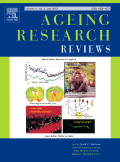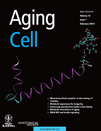
REJUVENATION RESEARCH
Scope & Guideline
Illuminating the Future of Gerontology and Rejuvenation
Introduction
Aims and Scopes
- Geroscience and Longevity Research:
Focuses on the biological mechanisms of aging and the development of interventions aimed at extending healthspan and lifespan. - Clinical Trials and Therapeutics:
Investigates new pharmacological and non-pharmacological treatments aimed at mitigating age-related decline and diseases. - Nutrition and Functional Foods:
Explores the role of dietary components and supplements in promoting healthy aging and preventing age-related disorders. - Cognitive and Psychological Aspects of Aging:
Studies the impact of aging on cognitive function and mental health, including interventions to enhance psychological well-being in older adults. - Regenerative Medicine and Stem Cell Research:
Examines the potential of regenerative therapies, including stem cells, to reverse or mitigate the effects of aging. - Epidemiological Studies on Aging:
Analyzes demographic and health data to identify trends, risk factors, and outcomes associated with aging populations.
Trending and Emerging
- Mendelian Randomization Studies:
An increasing number of studies utilizing Mendelian randomization to understand the causal relationships between genetic factors and aging-related conditions, signifying a trend towards more robust epidemiological methodologies. - Functional Foods and Nutraceuticals:
Research on the effects of functional foods and nutraceuticals in promoting health and longevity is gaining momentum, reflecting a growing interest in dietary interventions. - Neurodegenerative Disease Research:
A notable rise in studies addressing neurodegenerative diseases, particularly Alzheimer's, indicates a heightened focus on understanding and mitigating cognitive decline in aging populations. - Inflammation and Aging:
Emerging themes around the role of inflammation in aging and age-related diseases are becoming increasingly prominent, suggesting a shift towards understanding systemic health impacts. - Gender Differences in Aging:
Research examining the differences in aging processes and health outcomes between genders is on the rise, indicating a more nuanced approach to geroscience. - Psychosocial Interventions:
There is a growing emphasis on the psychosocial aspects of aging, including mental health and community support, reflecting a holistic approach to healthspan.
Declining or Waning
- Caloric Restriction and Mimetic Studies:
Research focusing on caloric restriction and its mimetics has decreased, possibly due to the saturation of findings and a shift towards more innovative approaches to longevity. - Basic Science of Senescence:
While foundational studies on cellular senescence remain important, there appears to be a waning interest in purely mechanistic studies without translational applications. - Traditional Herbal Remedies:
The exploration of traditional herbal medicines for anti-aging effects has become less frequent, as more emphasis is placed on scientifically validated pharmacological interventions. - Aging and Environmental Factors:
The exploration of environmental influences on aging, while still relevant, has seen a reduced focus compared to more direct biological and clinical interventions.
Similar Journals

Aging Medicine
Advancing Insights for a Healthier Aging PopulationAging Medicine, published by Wiley, is a pivotal open-access journal that has been at the forefront of research dedicated to the aging population since its inception in 2018. With a focus on both geriatric care and gerontology, the journal serves as a crucial resource for researchers, healthcare professionals, and students interested in understanding the complexities of aging and the related medical challenges. Although it holds a Q3 quartile ranking in the fields of Aging and Geriatrics and Gerontology according to the 2023 metrics, the journal continues to effectively disseminate valuable research and insights, helping to bridge gaps in knowledge and practice. With an E-ISSN of 2475-0360, it offers an open-access model that ensures broader accessibility to its published content, thus promoting collaboration and innovation across disciplines. As the journal converges towards 2024, it remains committed to evolving with the dynamics of aging research, making it a significant platform for the exchange of ideas and advancements in this essential field.

AGING CLINICAL AND EXPERIMENTAL RESEARCH
Empowering insights for a healthier aging population.Aging Clinical and Experimental Research, published by Springer, is a premier journal dedicated to advancing the field of geriatric medicine and understanding the complexities of aging. With a commitment to publishing high-quality original research, review articles, and clinical studies, this journal plays a crucial role in disseminating knowledge to researchers, healthcare professionals, and students interested in the biological, clinical, and social aspects of aging. Boasting a 2023 impact factor that places it in the Q2 quartile for both Aging and Geriatrics and Gerontology categories, it ranks favorably within the Scopus metrics—20th out of 116 in Geriatrics and Gerontology and 15th out of 38 in Aging. The journal provides vital insights for the ongoing discourse in aging research, making it an essential resource for those seeking to enhance their understanding of aging-related phenomena and improve healthcare outcomes across populations. The converged years of publication from 1989 to 2024 demonstrate its longstanding commitment to the field, highlighted by its notable presence in Germany and access to a broad international readership.

Turkish Journal of Geriatrics-Turk Geriatri Dergisi
Advancing research in geriatric care.The Turkish Journal of Geriatrics (Türk Geriatri Dergisi), with ISSN 1304-2947 and E-ISSN 1307-9948, is a distinguished scholarly publication dedicated to the field of geriatrics and gerontology, proudly published by the Turkish Geriatrics Society. Established to foster knowledge and research in the aging population, this journal plays a crucial role in disseminating significant findings and advancements in the medical care of elderly individuals. Since its inception in 1998, the journal has committed to high-quality, peer-reviewed articles that explore diverse aspects of geriatric medicine, contributing vital insights to practitioners and researchers alike. Although it currently holds a Q4 ranking in the category of Geriatrics and Gerontology, the Turkish Journal of Geriatrics is on an upward trajectory, making it an essential resource for those specializing in the care of older adults. Researchers and professionals are encouraged to explore its rich archive and benefit from the open-access publishing model, promoting broader access to impactful research. For those invested in the well-being of the elderly, the Turkish Journal of Geriatrics serves not only as a platform for scholarly communication but also as a catalyst for innovation in geriatric care.

AGEING RESEARCH REVIEWS
Transforming Insights into Age-Related ChallengesAGEING RESEARCH REVIEWS, published by Elsevier Ireland Ltd, is a prestigious academic journal dedicated to advancing our understanding of the biological, psychological, and societal aspects of aging. With an ISSN of 1568-1637 and E-ISSN of 1872-9649, this journal has established itself as a leading resource in the fields of Aging, Biochemistry, Biotechnology, Molecular Biology, and Neurology, consistently ranked in the Q1 category across these disciplines as of 2023. For researchers, students, and professionals eager to explore cutting-edge findings and innovative methodologies, AGEING RESEARCH REVIEWS gathers comprehensive reviews that facilitate a deeper understanding of age-related processes. Its high impact factor and exceptional Scopus rankings—ranking #1 in Aging and #3 in Neurology—underscore its critical role in shaping contemporary aging research. This journal not only serves as a vital reference point but also fosters a collaborative space for the scientific community focused on improving health outcomes across the life span. Published continuously since 2002 and with a converging focus through 2024, AGEING RESEARCH REVIEWS remains committed to disseminating impactful knowledge that drives progress in our understanding of the aging process.

AGING CELL
Innovating Solutions for Healthy AgingAGING CELL is a premier peer-reviewed journal published by Wiley, specializing in the rapidly evolving field of aging research and cell biology. Established in 2002 and enjoying an impressive track record as evidenced by its Q1 ranking in both Aging and Cell Biology categories for 2023, the journal has become a vital resource for researchers and professionals alike. With a significant impact factor highlighting its scholarly influence, AGING CELL offers an open access model since 2014, ensuring that groundbreaking research is accessible to the global community. The journal covers a wide array of topics related to the mechanisms of aging at the cellular and molecular levels, making it essential reading for anyone invested in understanding the complexities of aging processes and their implications for health and disease. With a broad international readership based in the United Kingdom and beyond, AGING CELL is dedicated to disseminating high-quality research that impacts scientific understanding and fosters advances in the field.

GeroScience
Catalyzing Collaboration in Aging StudiesGeroScience, published by Springer, is an esteemed open-access journal that focuses on the multidisciplinary field of aging research. Since its inception in 2017, the journal has quickly established itself as a leader in its field, achieving impressive Q1 quartile rankings across various categories, including Aging, Cardiology and Cardiovascular Medicine, Geriatrics and Gerontology, and Complementary and Alternative Medicine, as per 2023 evaluations. With a significant impact factor that underscores its influence and reach in academia, GeroScience aims to disseminate high-quality research that addresses the complex challenges and advancements related to aging. Its accessible publication format fosters greater dissemination of knowledge and encourages collaboration among researchers, practitioners, and students eager to contribute to the growing body of work on age-related health issues. As it continues to thrive, GeroScience remains a pivotal resource for anyone looking to stay at the forefront of aging research.

JOURNALS OF GERONTOLOGY SERIES A-BIOLOGICAL SCIENCES AND MEDICAL SCIENCES
Unlocking Insights into Aging for Enhanced Quality of LifeJournals of Gerontology Series A: Biological Sciences and Medical Sciences, published by Oxford University Press Inc, stands at the forefront of aging research, bridging the gap between biological sciences and medical practices to address the complexities of gerontology. With an impressive impact factor reflecting its significant contribution to the field, this journal is recognized within the Q2 quartile in Aging and the Q1 quartile in Geriatrics and Gerontology for 2023, evidencing its high-quality scholarship and relevance. Researchers and professionals will find valuable insights through its comprehensive coverage of aging-related topics, informed by cutting-edge studies ranked among the top in their category—Rank #11 in Geriatrics and Gerontology and Rank #9 in Aging on Scopus. The journal aims to disseminate innovative research that can impact health care practices and enhance the quality of life in older populations. For those engaged in studies of aging, this journal offers a vital platform for sharing knowledge and advancing the understanding of biological and medical sciences as they pertain to gerontology.

BioScience Trends
Pioneering Insights in Molecular Biology and Social HealthBioScience Trends, published by IRCA-BSSA, is a leading academic journal based in Japan that significantly contributes to the fields of biochemistry, genetics, molecular biology, and social health sciences. With an impactful Scopus ranking that places it in the 97th percentile for health social sciences and the 89th percentile for general biochemistry, this journal is an essential resource for researchers and professionals alike. Since its inception in 2007, BioScience Trends has fostered high-quality research dissemination and collaboration, offering a platform for innovative studies and insights that are vital for advancing knowledge in life sciences. Despite being a non-open access publication, it maintains rigorous standards and a reputable presence in the academic community, with an impressive categorization into Q1 and Q2 quartiles as of 2023. Researchers, students, and professionals seeking to stay at the forefront of scientific exploration and health advancements will find BioScience Trends to be an invaluable source for scholarly articles and emerging trends in their respective fields.

npj Aging and Mechanisms of Disease
Empowering Research for a Healthier Futurenpj Aging and Mechanisms of Disease is a leading open-access journal dedicated to advancing the understanding of the biological mechanisms underlying aging and age-related diseases. Published by NATURE PORTFOLIO in the United Kingdom, this journal has established itself as a vital resource within the fields of Aging and Geriatrics and Gerontology, proudly holding a prestigious Q1 ranking in both categories as of 2023. With an impressive Scopus ranking, placing it in the top 10 for Geriatrics and Gerontology, and the top 9 for Aging, the journal is committed to disseminating high-quality, peer-reviewed research that offers innovative insights and fosters collaboration among researchers and practitioners. Since its inception in 2015, npj Aging and Mechanisms of Disease has embraced the open-access model, ensuring that groundbreaking findings are freely available to all, thereby promoting widespread knowledge-sharing within the scientific community. This journal serves as an essential platform for those seeking to explore the complex interplay of genetic, molecular, and environmental factors that influence aging and its associated challenges.

npj Aging
Connecting scientists and clinicians in the study of aging.npj Aging, published by Nature Publishing Group, is a pioneering journal dedicated to advancing our understanding of the biological, clinical, and social aspects of aging. With an E-ISSN of 2731-6068, this open-access journal aims to foster innovative research and interdisciplinary dialogue among scientists, clinicians, and policy-makers. As of its inception in 2023, the journal has quickly established itself within the scholarly community, ranking 15th in Medicine (Geriatrics and Gerontology) and 12th in Biochemistry, Genetics, and Molecular Biology focusing on Aging, reflecting a strong percentile standing in both categories. The journal provides a platform for disseminating important findings that address the complexities of aging, ensuring accessibility for a broader audience. Located at the Macmillan Building, 4 Crinan St, London, England, npj Aging aspires to be an essential resource for those seeking to enhance their understanding and contribute to the field of gerontology.